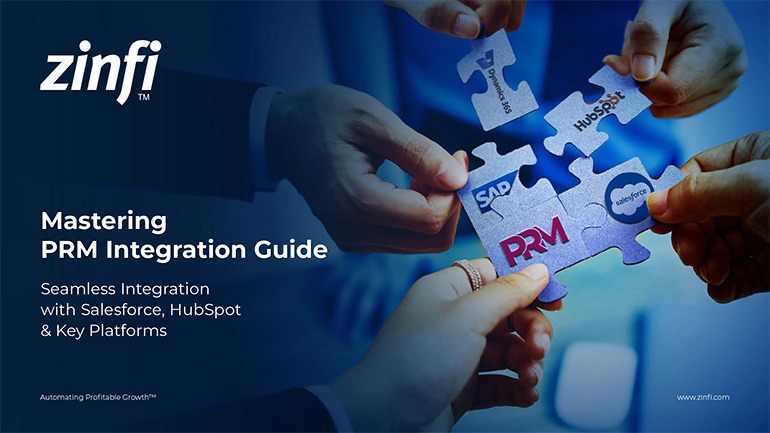Glossary - How to - Partner Portal Software Solutions
How to Choose the Best Partner Portal Software Solutions?
Introduction
In today’s competitive business environment, organizations that rely on channel partnerships need efficient tools to manage their partners. Partner portal software solutions are crucial in streamlining partner interactions, enhancing collaboration, and improving overall channel performance. These platforms provide a centralized hub where businesses can share marketing materials, track performance, and communicate effectively with partners.
Partner portal software solutions are integral to Partner Relationship Management (PRM). They help businesses automate workflows, track sales, and ensure partners have access to the latest resources. Organizations can optimize partner engagement and drive revenue growth by integrating automation and data-driven insights.
Key Takeaways:
Identify Your Business Needs and Objectives
For selecting the right partner portal software solution, businesses must first define their objectives:
- Do you need a portal for lead management?
- Are you focusing on partner training and certification?
- Do you require marketing automation tools?
Clarifying these requirements helps narrow software options and ensures the chosen solution aligns with strategic goals.
Evaluate Essential Features
A robust partner portal software should offer
- Customizable Dashboards: Tailored views for different partner roles.
- Automated Lead Distribution: Ensures partners receive qualified leads efficiently.
- Marketing Development Funds (MDF) Management: Helps track and allocate funds effectively.
- Training and Certification Modules: Keeps partners informed and skilled.
- Analytics and Reporting: Provides insights into partner performance and sales metrics.
Consider Integration Capabilities
Seamless integration with existing Customer Relationship Management (CRM), Enterprise Resource Planning (ERP), and Marketing Automation Platforms is essential for maximizing efficiency. Popular integrations include:
- Salesforce
- HubSpot
- Microsoft Dynamics 365
- SAP
Prioritize User Experience and Accessibility
The software should have an intuitive user interface and be accessible across devices. Features like:
- Mobile responsiveness
- Multi-language support
- Single sign-on (SSO) makes the portal more user-friendly and inclusive.
Assess Security and Compliance
Data security is crucial when sharing sensitive partner information. Ensure the software complies with industry standards such as:
- GDPR
- SOC 2 Compliance
- ISO 27001 Certification
Summary of Key Takeaways:
- Define your business goals before selecting a partner portal solution.
- Look for essential features like automated lead distribution, customizable dashboards, and analytics.
- Ensure the software integrates seamlessly with your existing CRM, ERP, and marketing tools.
- Prioritize user experience by choosing an intuitive and accessible platform.
- Verify that the software complies with security and regulatory standards to protect sensitive data.
Industry-Specific Examples:
- Automotive Manufacturing: Companies use partner portal software solutions to manage distributor relationships, track spare parts inventory, and provide marketing collateral.
- Consumer Electronics: In this industry, portals help track product launches, facilitate training for retail partners, and support co-branded marketing campaigns.
- Energy Production: Energy firms leverage partner portals to manage renewable energy projects, track compliance, and coordinate supply chain logistics.
- Financial Services: Banks and financial institutions use portals for affiliate marketing, regulatory compliance, and lead referral management.
- Food and Beverage: Manufacturers rely on these solutions for distributor collaboration, tracking sales performance, and sharing promotional materials.
- Healthcare Services: Healthcare organizations implement partner portals to manage vendor partnerships, ensure compliance, and streamline patient referral processes.
- Information Technology: IT firms use partner portals for reselling programs, software license tracking, and customer support escalation.
- Pharmaceutical Development: Pharma companies utilize these platforms to manage clinical trial partnerships, distribute regulatory updates, and support sales reps.
- Retail Industry: Retailers employ partner portals for supply chain coordination, drop shipping, and brand collaboration.
- Telecommunications: Telecom providers use portals to manage dealer networks, track service activations, and offer training resources.
Conclusion:
Selecting the right partner portal software solution is crucial for effective partner management. Businesses must evaluate their needs, assess features, ensure seamless integrations, prioritize user experience, and maintain high-security standards. Organizations with the right solution can enhance partner engagement, improve operational efficiency, and drive growth.
Associated Keywords:
- Partner Portal Software Comparison
- Best Partner Management Solutions
- Partner Relationship Management Tools















